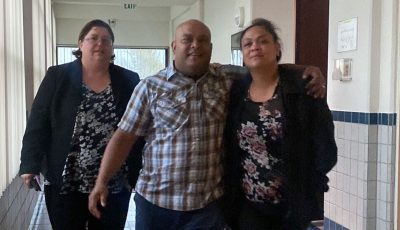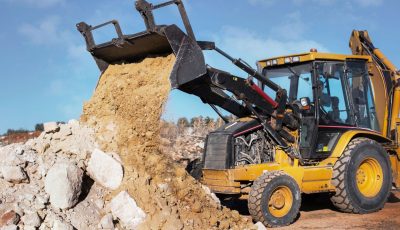‘Torres supported HR 339’
HR 339’s bar on construction workers ‘never changed’
Contrary to a statement that he did not support the intent of House Resolution 339, Delegate Gregorio Kilili C. Sablan (Ind-MP) pointed out that Gov. Ralph DLG Torres did support the measure during deliberations by the U.S. Congress during the second quarter of 2017.
Quoting Torres’ testimony during the U.S. Senate Energy and Natural Resources Committee hearing on H.R. 339 last April 27, 2017, Sablan said in a statement that Torres backed the provision that bars construction workers from using the CW-1 program.
“Two years ago, I requested the U.S. [Citizenship] and Immigration Services to review the issuance of CW permits to individuals in the construction trades. In my view, CW permits were only for job categories not available under existing visa classifications, and that construction workers could be sourced through H-2B visas,” Torres wrote in his written testimony.
“As we look back at the CW permits issued in the last two years, it is evident that a large majority of the new permits that have led to the shortage have been in the construction trades. Removing construction workers from the eligible job categories for the CW permit will force employers to go to better suited visa classifications and alleviate the limited CW permits for occupations that are crucial for the overall economy and the needs of the people,” he added.
Last week, Torres told Saipan Tribune that the repercussions of H.R. 339 were something that he did not support. He added that the outcome of enacting HR 339 into law was “devastating to everybody here on the island.”
Torres issued the statement after Saipan Tribune requested for comments on USCIS’ decision to classify general maintenance workers as construction occupations.
In a separate statement over the holidays, Sablan clarified that Torres was in support of the provision that barred construction workers from the CW-1 program “…at the time and without reservation.”
“H.R. 339’s bar on the use of CW permits for new construction workers never changed from introduction of the bill to the day President Trump signed it into law. Moreover, that same language is reflected in draft legislation that [the Northern Marianas Business Alliance Corp.] began circulating in June this year,” said Sablan.
“For the record, I believe he was absolutely correct in advocating then for employers of construction workers to use H-2B visas and not the limited CW permits that so many of our other local businesses rely on,” he said, adding that the governor also went public in urging construction companies to switch to H-2B visas “even before the [U.S.] Senate hearing.”
According to Sablan, though it was the “governor’s prerogative to change his mind,” U.S. Congress’ view of the situation is crucial to the overall fate of the CW-1 program.
“I will note that the members of Congress to whom the governor testified—under oath—in support of this law are the same members of Congress that I am working with now to make sure we have enough workers in our economy. We need their help. And if these members of Congress believe that the word of the governor of the Marianas cannot be trusted, they may be much less willing to listen to what he says the Marianas needs,” he said.



























